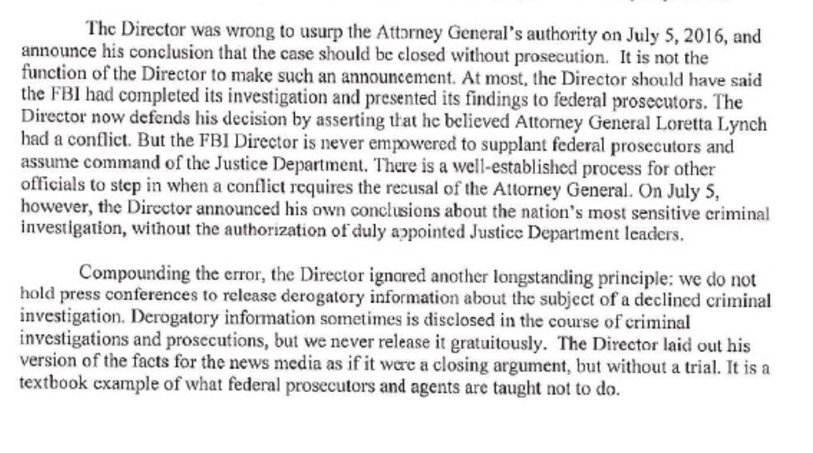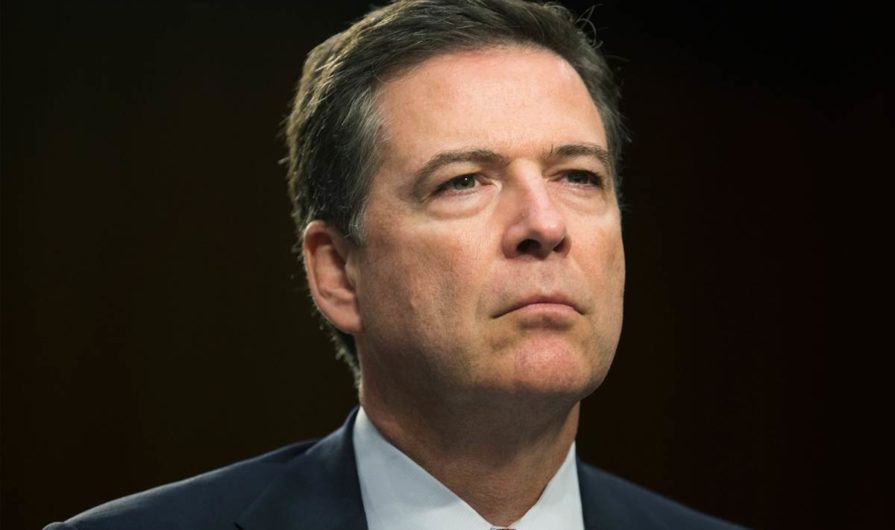For those who never liked like Donald Trump, the firing of FBI Director James Comey will be seen as a Watergate style attempt (think Archibald Cox), to shut down the ongoing investigation into Russian interference in our 2016 election, an investigation that was getting dangerously close to Donald Trump himself.
Comey’s firing will be seen as a desperate attempt to silence and thwart a messenger of truth who had damaging evidence of Trump’s personal involvement with a secret Russian campaign to subvert the election.
The timing of the firing–two days before Comey was due to testify in front of Congress again–adds additional fodder to the belief that his firing was nothing more than a case of killing the messenger, one who was getting dangerously close to delivering some very damaging information on Donald Trump.
But for others, the firing should have come long ago, when Trump first entered the White House back in January. Comey’s handling of the investigation into Hillary Clinton’s email server and the reckless way she handled classified documents was seen by both sides of the aisle as unprofessional and an unprecedented intrusion into a presidential campaign.
Trump supporters felt there was ample evidence to prosecute Clinton under the Federal Records Act and Title 18 of the United States Code.
Clinton supporters, on the other hand, cried foul when Comey, in his July 5, 2016 press conference, described Hillary’s behavior, in regards to her handing of classified government documents, as “extremely careless.” Despite Comey’s recommendation against prosecuting Clinton, his stinging rebuke of her behavior was damaging enough.
For a while during that press conference, Comey sounded more like a prosecutor giving a closing argument, rather than an FBI Director recommending to the Justice Department he served under that there be no prosecution.
It was Comey’s conduct during this time that, according to Trump’s Deputy Attorney General Rod Rosenstein, made him unfit to continue as FBI Director. It became the main basis for his firing.
Here is Trump’s Deputy AG Rod Rosenstein explaining why James Comey was unfit to continue leading the FBI:
 No doubt that the firing of Comey will provide the cable news networks plenty of meaningless chatter and feigned outrage from pundits across the political spectrum for weeks to come.
No doubt that the firing of Comey will provide the cable news networks plenty of meaningless chatter and feigned outrage from pundits across the political spectrum for weeks to come.
Many pundits will call this a “constitutional crisis” and will draw endless parallels to Nixon’s Saturday Night Massacre, but the reality is that this is far from the military coup or the evil Dr. No takeover many of these talking heads are describing it as.
The investigation into Trump’s alleged collusion with the Russian government during the campaign will not only continue, it will most probably be handed to a special prosecutor who will really ramp up the pressure and number of subpoenas handed out.
It’s hard to believe that Trump would have thought that firing Comey would end or slow down the investigation. Quite the contrary, Comey’s firing will only serve to reinvigorate the investigation and will certainly fire up the opposition.
The real story will be who Trump chooses to replace him. There are a few choices out there whose very mention would further inflame an already raging conflagration.
How do the names Rudy Giuliani or Trey Gowdy sound? Are you ready for Washington DC’s version of UFC?
Pass the popcorn. This is going to get interesting.








